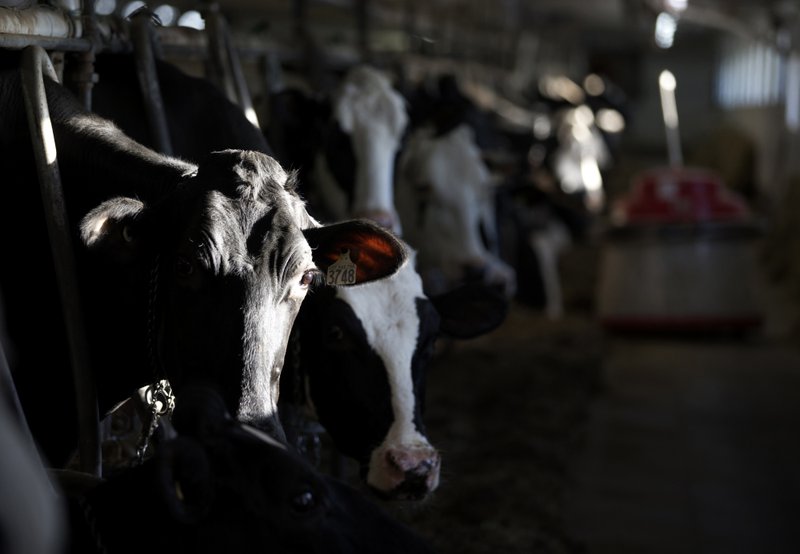Justin Trudeau's defense of Canadian dairy tariffs isn't just about farmers and politics -- it's about debt, too.
The prime minister squared off with President Donald Trump this month over Canada's "supply management" system, which sets quotas for dairy, eggs and poultry and charges high tariffs above that threshold. Despite a U.S. surplus on dairy trade with Canada, the president wants to blow apart the Canadian system.
Trudeau is digging in for a variety of reasons, including the financial fallout. Canada's protected dairy system caps production to avoid oversupply and maintain stable prices for farmers. Permits to sell within supply management's cap, known as quota, have grown in value and are now worth $26 billion, with about $22.5 billion in dairy specifically. Farmers use quota as collateral, and total farm debt across Canada amounts to $76.6 billion -- nearly one-third of it lent through a federal agency.
If Trudeau bowed to calls for supply management to be dismantled, he'd be eroding a key asset in a sector to which his government is a key lender.
"It'd be catastrophic because we've gone through and assessed and included that value in our business plans and business operations," said Ralph Dietrich, chairman of the Dairy Farmers of Ontario, an industry group in Canada's most populous province. "The increased value is because of the desire to be involved in a system that works."
It's unclear precisely how much debt is secured by the value of Canadian dairy quota. Farm Credit Canada, a lender owned by the federal government, oversees $23.3 billion in loans, as of its last annual report. Of that, $4.28 billion is in dairy loans. The agency declined an interview request, but said in a statement most dairy loans are secured by a combination of quota and other assets, and just over 1 percent are secured by quota value alone.
Chartered banks also hold about $28.5 billion in total farm debt while credit unions hold another $11.26 billion, according to Statistics Canada. The agency doesn't break out dairy debt loads specifically.
"The value of quota now completely distorts the ability to be productive," Martha Hall Findlay, president of the Canada West Foundation think tank and a former lawmaker, said in a BNN Bloomberg interview last week. "We should do what we need to do in moving away from supply management with compensation, transition -- nobody wants to harm anybody."
Canada's biggest cheesemaker also says Trump's criticism of certain parts of Canada's dairy system has merit. "I understand the frustration of the U.S. side and quite frankly I think they have every reason to be upset," Saputo Inc. Chief Executive Officer Lino Saputo Jr. said recently in a phone interview.
Trump has lashed out against Canadian dairy tariffs, and the U.S. is pressing to abolish supply management altogether in ongoing North American Free Trade Agreement Talks. However, Agriculture Secretary Sonny Perdue said the U.S. doesn't want to "do away" with the system, but would like "more access."
Lyle Vanclief, who served as Canada's agriculture minister from 1997 to 2003, said neither the Bill Clinton nor W. Bush administrations pressed to abolish supply management, though countries like New Zealand criticized it and it was always a thorn in trade talks.
"I certainly had some spirited debates and discussion at the [World Trade Organization]," he said. Trump and others don't understand supply management, he said. "What's Trump prepared to give up in order to get it? Nothing, nothing. So I think our government has to stand up."
Information for this article was contributed by Jen Skerritt of Bloomberg News.
SundayMonday Business on 06/24/2018
